Burnout Management Coach Explains Why The 8-Hour Workday / 40-Hour Workweek Is Outdated
It’s crazy to think that we spend over a third of our entire lives sleeping. What’s even crazier is we spend another third working or studying or partaking in any worldly commitments we may have.
Well, the obligatory 9-to-5 isn’t necessarily the smartest approach to work, as it turns out. TikToker and Burnout Management Coach Emily Ballesteros has recently shared her professional opinion on why the 8-hour workday is tragically outdated and it’s high time companies adopted a more appropriate work schedule.
Turns out, the ‘9-to-5 ‘ concept isn’t the smartest approach when it comes to work as explained by Burnout Management Coach Emily Ballesteros
@emilybruthReply to @iamjoegioia I’m glad you brung it up cuz I’ve been dying to talk about it for a f*ckin hot minute ##burnout ##cc ##40hourweek ##fyp ##workload♬ original sound – Emily Ballesteros
Meet Emily Ballesteros, a Burnout Management Coach who shares videos on a variety of topics related to burnout, energy and time management, work and mental health, and advice on how to deal with work-related issues.
Recently, she has come out with a video addressing the 8-hour workday / 40-hour work week and its underlying issues. The video starts off by giving some context, namely that Henry Ford, the founder of the Ford Motor Company, who designed the 8-hour workday concept—8 hours of work, 8 hours of rest, and 8 hours of sleep, rinse and repeat. Well, actually, it was not Henry Ford, but rather Robert Owen, Welsh manufacturer and labor rights activist. In any case, one thing’s for certain: it’s all for one specific industry—manufacturing.
In her now viral TikTok video, Emily explains why the 8-hour workday doesn’t make sense in many industries
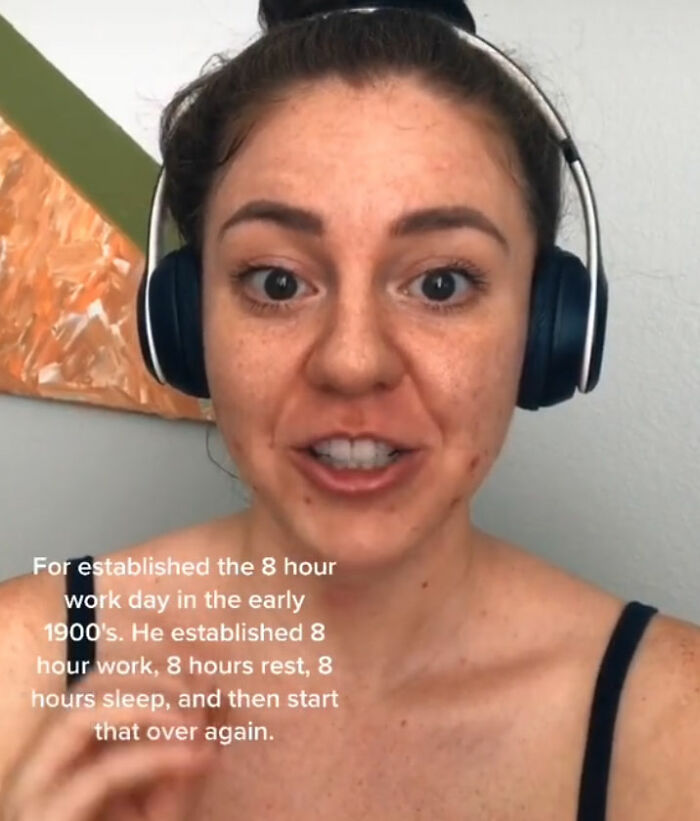
Image credits: emilybruth
You see, the 8-hour workday concept was created for a particular industry—manufacturing
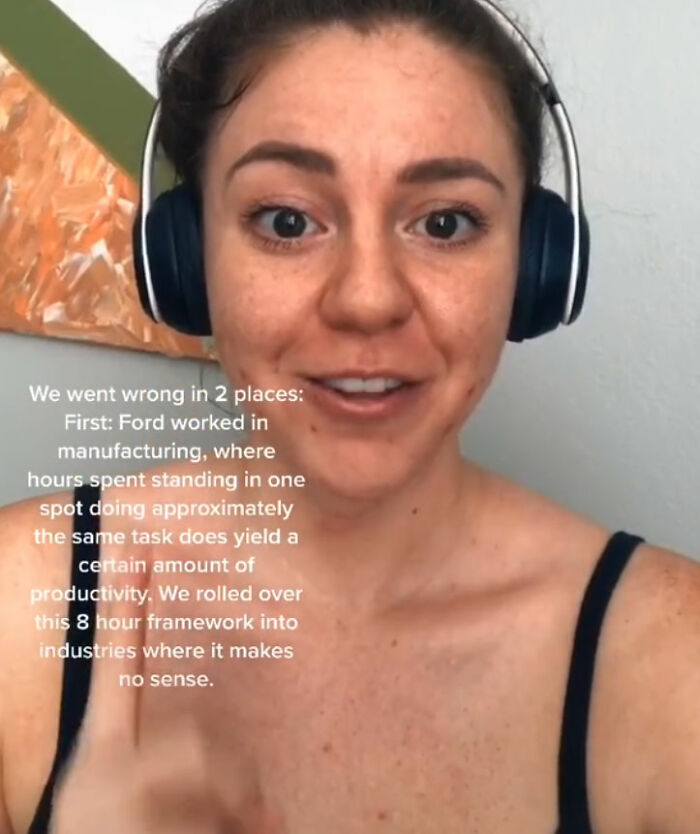
Image credits: emilybruth
Ballesteros explains that though it might be a solution to that particular business vertical, it’s by no means universal. Many industries are actually project-based, meaning that people have to keep themselves busy most of the time. And in turn, this leads to problems of reduced productivity, loss of motivation, and possible burnout, among others.
Besides this, the 8-hour workday was created in a different historical context—wives used to stay at home and tend to the household, there was no hour-long super-commuting, and technology was drastically different, making it impossible for many to work from home.
“This framework was created by one man, in one industry, 100 years ago and we have not improved it?” Ballesteros concluded the video with her last point that usually such systems are designed and checked by more than one individual, yet here we are.
However, this doesn’t translate well when tackling a ‘project-based’ job where people don’t need 8 hours
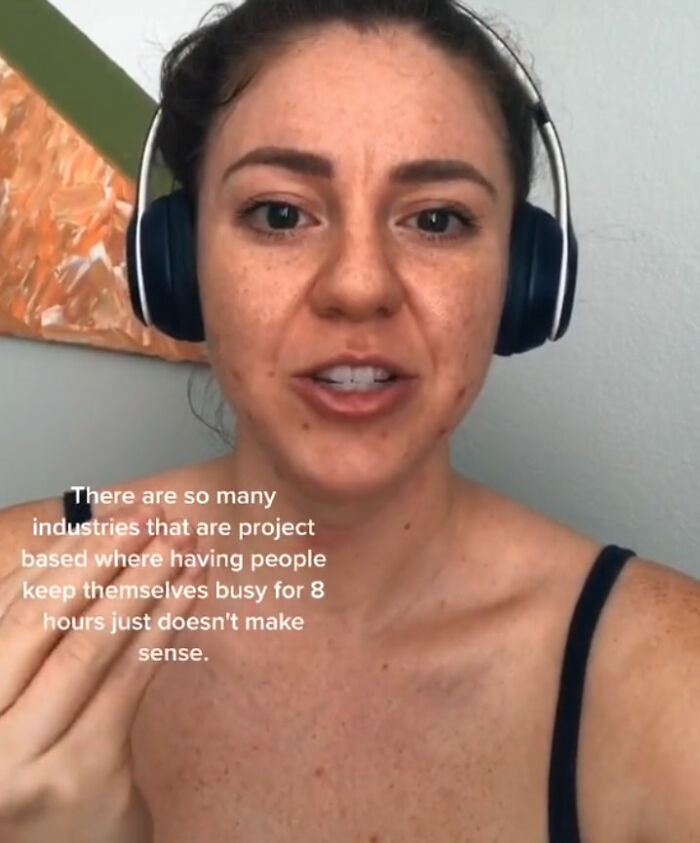
Image credits: emilybruth
Besides that, the 8-hour work day is outdated because it was created within a particular historical context
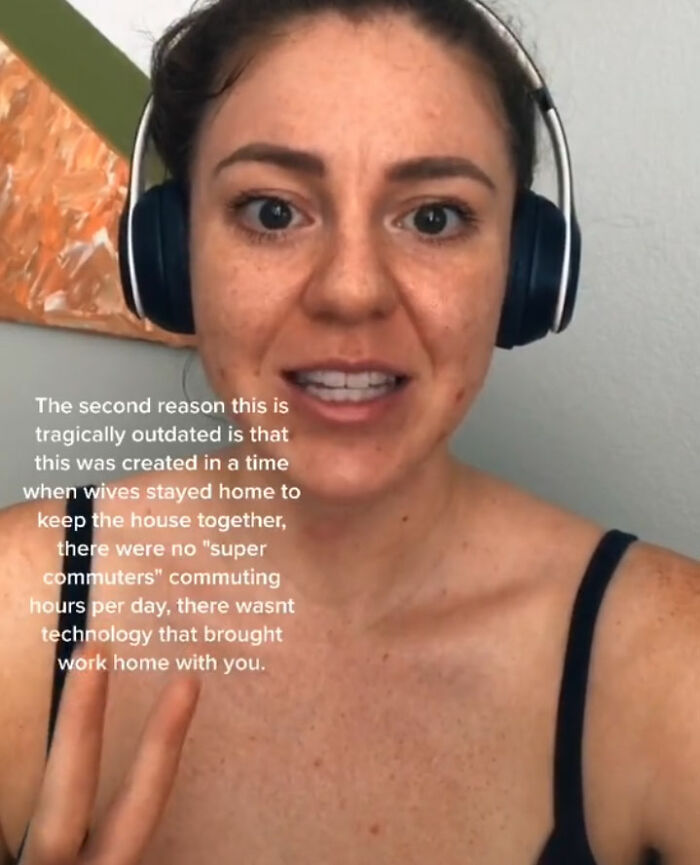
Image credits: emilybruth
Her video quickly went viral on TikTok, garnering over 1.6 million views with over 257,000 likes and over 3,000 comments, and started making headlines among internet news media outlets.
Since this, Ballesteros released another video with possible solutions to the 8-hour workday problem. Her first suggestion (of two) is paying for the completion of tasks instead of per hour, adjusted accordingly by each industry. So, no matter how long a task will take, as long as it’s done by a specific deadline, that’s all that matters.
The other suggestion is shifting to a 6-hour workday. According to her and the studies she references, productivity stayed the same or even increased because the new deadlines created urgency, and urgency created focus, allowing the same tasks to be performed over a shorter timespan.
To top it all off, she pointed out that over the 100 years has passed and nobody ever changed anything
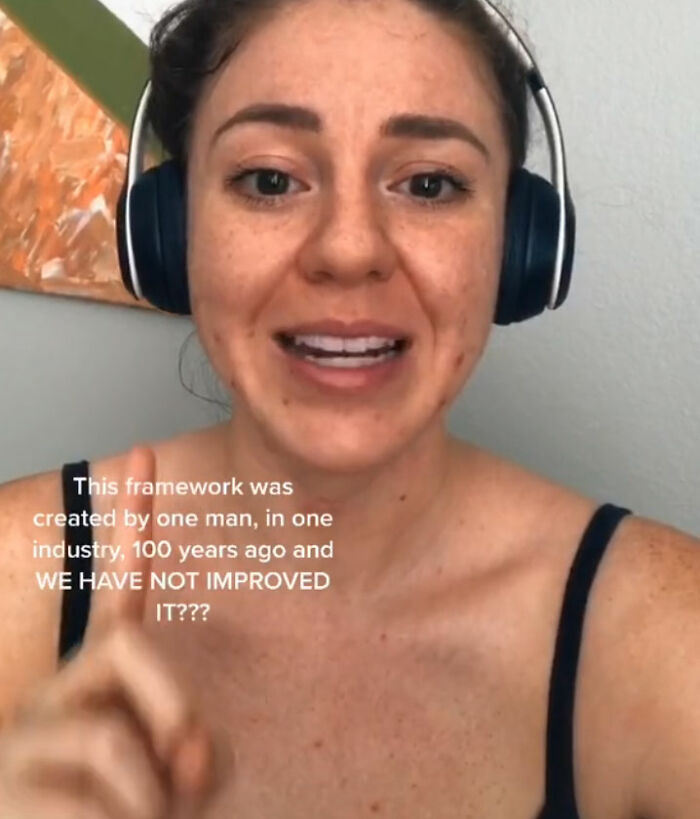
Image credits: emilybruth
The video has since then gone viral, garnering over 1.6 million views and 250k likes
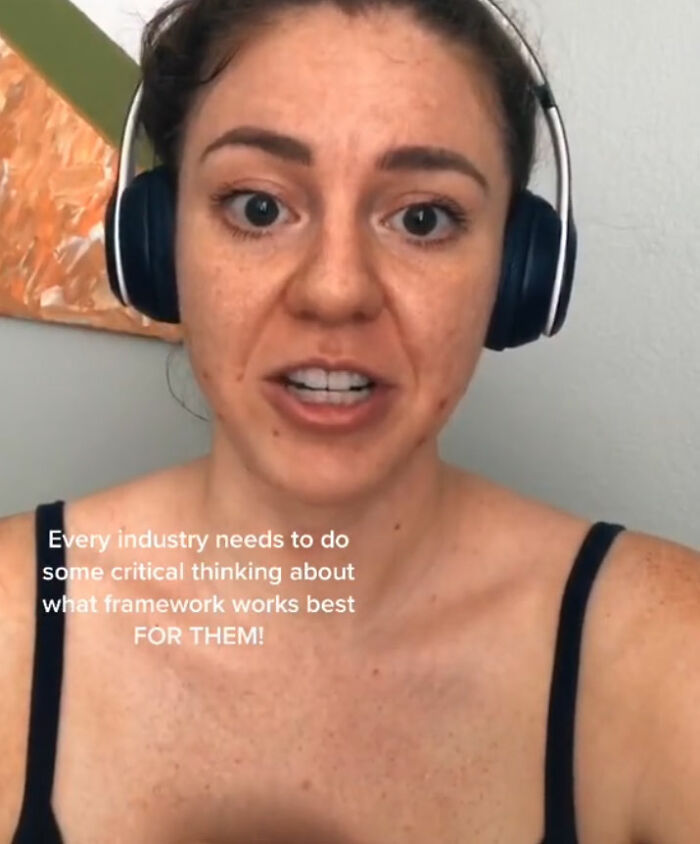
Image credits: emilybruth
Now, a 6-hour workday or 4-day workweek sounds great, but it does come with its drawbacks. For one, business doesn’t stop when the employees close the door at the end of the day and some industries rely on having people work for the full five or even seven days. So, companies might have to hire more people, making it more expensive for the employer.
Besides this, the shorter work hours and tighter deadlines may lead to people experiencing more stress leading to less work satisfaction, possibly loss of motivation, and whatnot. And don’t forget all of the people who enjoy their work and don’t mind staying the eight mandatory hours (or even more).
This also causes problems on a greater scale: shorter work days in countries that have social security systems that are based on 8-hour workdays would mean that a person would likely not meet the necessary minimum limit of being able to retire at a later time in their life, or their pension would be less than it would have been under an 8-hour workday.
Ballesteros also made a follow-up video providing possible solutions to the 8-hour work day
@emilybruthReply to @jacquelinelinnea This just skims the surface but I hope it provides some more info! ##burnout ##40hourworkweek ##workload ##timemanagement♬ original sound – Emily Ballesteros
What are your thoughts on this? Is your job possible under a daily 6-hour schedule, and would you switch to it if given the opportunity? Let us know in the comment section below!
Here’s how people online reacted to this video
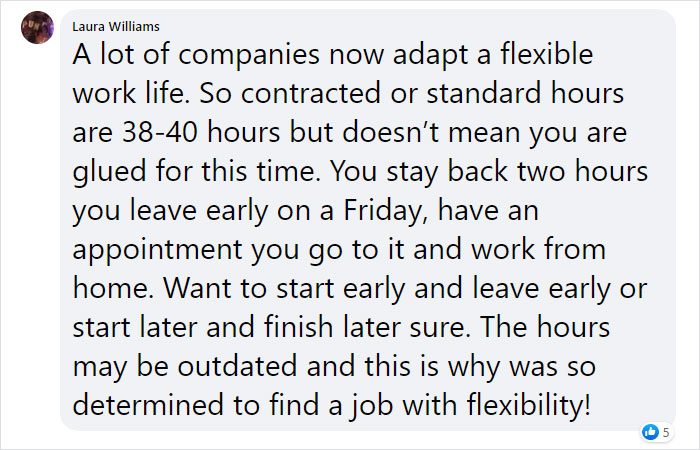

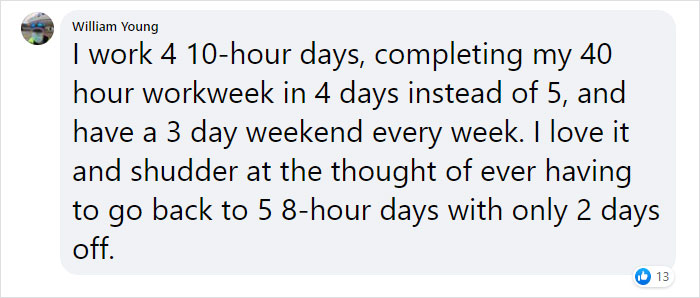
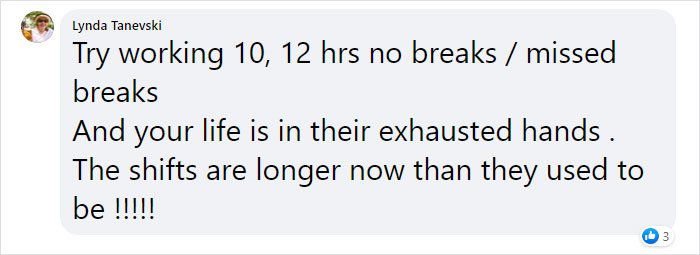

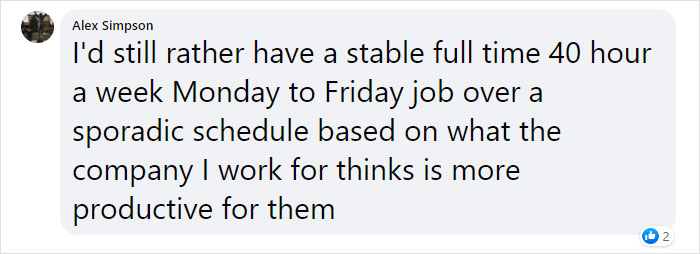





No comments